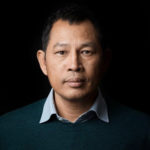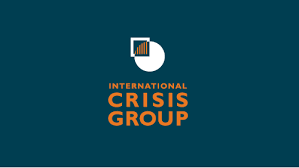The International Crisis Group Report on Burma/Myanmar–An Analysis
TRANSCEND MEMBERS, 25 Oct 2021
Maung Zarni – TRANSCEND Media Service
22 Oct 2021 – Over the nearly 20 years, I have generally viewed ICG’s reports as little more than polished, but low quality, slanted analyses of Myanmar affairs, and have written extensively and critically on ICG’s policy briefs, when doing so pleased anyone in power wasn’t my concern at all.
I have long written external actors to do “good” for my fellow Burmese people, whatever their (external actors’) rhetoric. However, 20 Oct 2021 ICG policy brief is an empirically grounded prognosis – The Deadly Stalemate in Post-Coup Myanmar.
ICG consultants were proven way too rosy – delusional – with their analyses about the military’s readiness for international engagement, reforms, democratic transition etc. Worse still, the ICG falsely framed the state-directed genocidal attacks on Rohingyas in 2012 – as “communal violence”, absolving the military-state under smooth-talking, but no less mass-murderous ex-General and President Thein Sein of its central criminal responsibility. The current Sec Gen Antonio Guterres – then head of the UNHCR – himself chose to ignore the regime’s clearest articulation – by no one other than President Thein Sein himself in a face-to-face meeting in Naypyiday in July/Aug of 2012 – that his regime was hell-bent on committing crimes against humanity – mass deportation and apartheid camps in Rakhine – regarding Rohingya.
Southeast Asian #countries will invite a non-political representative from #Myanmar to a regional summit later this month. @drzarni has more on the latest #developments. pic.twitter.com/8X12QjXRoZ
— ANews (@anews) October 22, 2021
The following year ICG awarded Thein Sein’s its “In pursuit of peace” award at a gala event in New York City.
Ten years on, the United Nations diplomats – and ICG – seem to have wised up, identifying the single most important FACT about Myanmar military:
it has absolutely no interest in dialogue and negotiation (give and take/compromise) with any legitimate “stakeholder”. It is nothing more than a criminal mafia, which neither UN nor ICG has said as yet.
Through the eyes of the dominant Bama or Burmese majority, the military is in effect a Fascist-like occupier. There are ethnic armed organizations with their own group interests who feel they need to negotiate with the Burmese military – the most powerful stakeholder in Burmese politics, irrespective of what the majority public opinion. They have their own reasons and rationales.
In so far as the majority, negotiations with the occupying Fascist mafia is absolutely un-acceptable. The glue between the nationalist Fascist-founded military of Burma and the formerly nationalistic Bama majority is gone.
The intense fighting, violence and sabotage are going in in strategic regions – that connect Sino-Burmese border region of Kachin Independence Army, India’s Northeast states of Mizoram, Manipura and Assam where there are local sympathies for Chin armed resistance inside the neighboring Myanmar, and Arakan or Rakhine coastal region which is now practically controlled by pro-independence Arakan Army. Additionally, parts of Kayah and Karen states bordering on Thai-Burmese boundary river the Salween. The overwhelming Bama ethnic majority – NLD’s main base – in all urban areas have through the Civil Disobedience Movement or CDM rendered the military-controlled state institutions completely dysfunctional.
We are entering a Syria like situation – in fact worse – in Myanmar.
The genie (of Zero-Sum war) is out of the bottle. It is simply inconceivable that it can be put back. I do not have the power to gaze and read the crystal ball, but I have not been wrong with my Burma analyses in the last 20 years. For I keep my eyes pinned to the ground – the ground of the dominant Bama or Burmese society. At least I am thankful that influential organizations – UN Envoy’s office, ASEAN and ICG – are now repeating the same warning that I have been sounding since the hyped-up “transition”. Leopards do not change their spots.
Final thought, there is also this fast-evolving, for worse, the imperial rivalry between China and USA is going to have a major effect on the internal military-society war inside Myanmar. We are NOT looking at the old Cold War-type situation. We are looking at a very distinct possibility of hot war in Asia. Burma is NOT yet seen as a theater of hot war. But that situation can change FAST.
___________________________________________
 A Buddhist humanist from Burma, Maung Zarni is a member of the TRANSCEND Network for Peace Development Environment, former Visiting Lecturer with Harvard Medical School, specializing in racism and violence in Burma and Sri Lanka, and Non-resident Scholar in Genocide Studies with Documentation Center – Cambodia. Zarni s the co-founder of FORSEA, a grass-roots organization of Southeast Asian human rights defenders, coordinator for Strategic Affairs for Free Rohingya Coalition, and an adviser to the European Centre for the Study of Extremism, Cambridge. Zarni holds a PhD (U Wisconsin at Madison) and a MA (U California), and has held various teaching, research and visiting fellowships at the universities in Asia, Europe and USA including Oxford, LSE, UCL Institute of Education, National-Louis, Malaya, and Brunei. He is the recipient of the “Cultivation of Harmony” award from the Parliament of the World’s Religions (2015). His analyses have appeared in leading newspapers including the New York Times, The Guardian and the Times. Among his academic publications on Rohingya genocide are The Slow-Burning Genocide of Myanmar’s Rohingyas (Pacific Rim Law and Policy Journal), An Evolution of Rohingya Persecution in Myanmar: From Strategic Embrace to Genocide, (Middle East Institute, American University), and Myanmar’s State-directed Persecution of Rohingyas and Other Muslims (Brown World Affairs Journal). He co-authored, with Natalie Brinham, Essays on Myanmar Genocide.
A Buddhist humanist from Burma, Maung Zarni is a member of the TRANSCEND Network for Peace Development Environment, former Visiting Lecturer with Harvard Medical School, specializing in racism and violence in Burma and Sri Lanka, and Non-resident Scholar in Genocide Studies with Documentation Center – Cambodia. Zarni s the co-founder of FORSEA, a grass-roots organization of Southeast Asian human rights defenders, coordinator for Strategic Affairs for Free Rohingya Coalition, and an adviser to the European Centre for the Study of Extremism, Cambridge. Zarni holds a PhD (U Wisconsin at Madison) and a MA (U California), and has held various teaching, research and visiting fellowships at the universities in Asia, Europe and USA including Oxford, LSE, UCL Institute of Education, National-Louis, Malaya, and Brunei. He is the recipient of the “Cultivation of Harmony” award from the Parliament of the World’s Religions (2015). His analyses have appeared in leading newspapers including the New York Times, The Guardian and the Times. Among his academic publications on Rohingya genocide are The Slow-Burning Genocide of Myanmar’s Rohingyas (Pacific Rim Law and Policy Journal), An Evolution of Rohingya Persecution in Myanmar: From Strategic Embrace to Genocide, (Middle East Institute, American University), and Myanmar’s State-directed Persecution of Rohingyas and Other Muslims (Brown World Affairs Journal). He co-authored, with Natalie Brinham, Essays on Myanmar Genocide.
Tags: Authoritarianism, Burma/Myanmar, Civil War, Direct violence, Military, United Nations, Violent conflict
This article originally appeared on Transcend Media Service (TMS) on 25 Oct 2021.
Anticopyright: Editorials and articles originated on TMS may be freely reprinted, disseminated, translated and used as background material, provided an acknowledgement and link to the source, TMS: The International Crisis Group Report on Burma/Myanmar–An Analysis, is included. Thank you.
If you enjoyed this article, please donate to TMS to join the growing list of TMS Supporters.

This work is licensed under a CC BY-NC 4.0 License.
